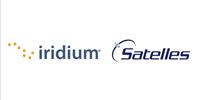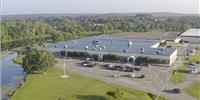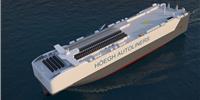The Maritime Simulation Institute in Middletown, Rhode Island is developing a liquefied natural gas (LNG) bunkering safety training course. The first session, which is expected to begin in June, will be for New Orleans-based Harvey Gulf International Marine.
The 45-hour bunkering course for Harvey’s LNG bunkering persons-in-charge (PIC) will be offered ahead of any U.S. Coast Guard regulations governing LNG bunkering. MSI has extensive experience in full-featured tugboat operations teaching and is applying its simulator expertise to LNG bunkering.
The first course likely will include Harvey Gulf master’s, mates and engineers. Courses will be offered at MSI facilities at Texas A&M outside Houston and at MFA, the Massachusetts Firefighting Academy in Stow, west of Boston.
Harvey’s decision to hire MSI comes as it launches its first dual fuel offshore supply vessel, which will run primarily on liquefied natural gas. In January, New Orleans-based Harvey Gulf International Marine launched the offshore supply vessel Harvey Energy at the TY Offshore yard in Gulfport, Miss. It’s the first U.S. flag vessel designed to operate on natural gas. Harvey Energy is the first of at least six such Wärtsilä 34DF-powered ships.
“Harvey Gulf is committed to using state-of-the-art vessels that provide clean, safe, efficient, reliable and competitive operations. Key to this paradigm shift is ensuring that our ships’ crews are properly trained in the bunkering of LNG,” said Chad Verret, executive vice president, Alaska & LNG operations.
In February, the U.S. Coast Guard published CG-OES 2-14, Guidelines for Liquefied Natural Gas Fuel Transfer Operations and Training of Personnel on Vessels Using Natural Gas as Fuel. The final policy letter will establish the guidelines for fuel transfer operations and training of personnel working on vessels that use LNG as a fuel and conduct transfer operations in waters subject to jurisdiction. MSI is working with the USCG and a number of classification societies to develop this and other training courses.
The U.S. Coast Guard’ Chemical Transportation Advisory Committee (CTAC) is looking closely at LNG as a marine fuel. The group’ most recent meeting in early April was held at the new U.S. Coast Guard Sector Houston-Galveston headquarters at Ellington Field.
Margaret Kaigh Doyle, an MSI vice president, is heading up the CTAC’s Working Group for Safety Standards for the Design of Vessels Carrying Natural Gas or Using Natural Gas as Fuel.
“This working group was asked to identify gaps in current Coast Guard policy and regulation on the design, installation and operation of natural gas fueled systems for propulsion of commercial vessels and the design of novel vessels carrying or processing natural and compressed gas vessels,” said Doyle. “The working group also has been selected to develop acceptable design criteria to fill those gaps.”




